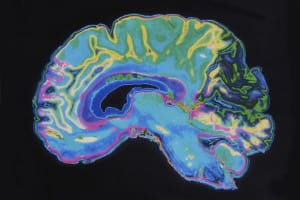Physical changes in normal brain thickness and normal brain volume may help explain why some people with Parkinson’s disease develop symptoms of sex addiction, according to new findings from a team of Italian and American researchers. Doctors and researchers are well-aware that some people affected by the movement control disorder Parkinson’s disease will develop symptoms of sex addiction or other forms of behavioral addiction. This fact has normally been attributed to the use of certain Parkinson’s medications. In a study published in February 2015 in the journal Movement Disorders, a team of researchers from one Italian institution and two U.S. institutions explored the connection between the symptoms of sex addiction (and other behavioral addictions) and abnormal tissue thinning and size or volume changes in certain key brain areas of people with Parkinson’s disease.
Sex Addiction
Doctors and researchers use the term sex addiction to refer to an ongoing pattern of sexual activity, sexual fantasy or sex-related thinking that significantly reduces any given individual’s ability to do such things as meet important obligations, maintain healthy relationships or experience a stable sense of personal well-being. Other terms for the same condition include hypersexuality, sexual addiction, compulsive sexual behavior and hypersexual disorder. One of the reasons for the existence of so many equivalent terms is the lack of a single, standard definition for sex addiction in the U.S. Despite the lack of a standard definition, doctors can use any one of a number of screening tools to identify people who likely have a damaging relationship to at least one aspect of sexual behavior or thought. Sex addiction fits well with a modern concept of non-substance-related addiction called behavioral addiction. A behavioral addiction triggers many of the lasting, harmful changes in brain chemistry and brain function normally associated with an addiction to drugs or alcohol, even though substance use is not the critical factor for affected individuals. Since 2013, the American Psychiatric Association has used the term addictive disorder as its official equivalent for behavioral addiction. In older terminology, behavioral addictions are also sometimes identified as impulse control disorders.
Sex Addiction and Parkinson’s Disease
People with Parkinson’s disease have an unusual tendency to develop symptoms of sex addiction or other forms of behavioral addiction such as gambling addiction or shopping addiction. Available research largely links this phenomenon to the use of a common Parkinson’s medication called levodopa, or the use of any one of another group of Parkinson’s medications called dopamine agonists. These medications alter the brain’s levels of a chemical called dopamine, which plays a crucial role in maintaining the normal ability to control and coordinate muscle movements. Dopamine also gives the brain its ability to feel pleasure. Under the current operating theory, the same boost in dopamine levels that can help Parkinson’s patients retain muscle control may also potentially make the brain’s pleasure center more susceptible to sex addiction and other behavioral addictions.
Impact of Brain Tissue Changes
In the study published in Movement Disorders, researchers from the University of Pennsylvania, the Philadelphia Veterans Affairs Medical Center and Italy’s Hospital Foundation San Camillo used brain imaging scans performed on 143 adults to explore the possible connection between physical brain changes and increased risks for sex addiction and other behavioral disorders in people with Parkinson’s disease. One hundred ten of the study participants had a Parkinson’s diagnosis, while the remaining 33 participants acted as a generally healthy comparison group. In the group affected by Parkinson’s disease, 58 individuals had symptoms of sex addiction or some other behavioral addiction. (The researchers used the term impulse control disorder, not behavioral addiction.) After analyzing the results of the brain scans, the researchers concluded that the Parkinson’s patients dealing with sex addiction or other forms of behavioral addiction had unusual thinning in several brain areas, including areas responsible for such things as planning, problem-solving and the ability to control emotions and moment-to-moment impulses. The researchers also concluded that the same group of study participants had an unusual loss of size or volume in the brain’s pleasure center and an unusual increase in volume in a brain area responsible for emotion processing. The study’s authors note a connection between the extent of observed brain change in people with Parkinson’s disease and the severity of the symptoms associated with sex addiction and other behavioral addictions. They believe that awareness of the connection between Parkinson’s and behavioral addiction (impulse control disorders) may help doctors improve treatments for affected individuals.



